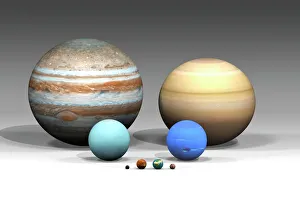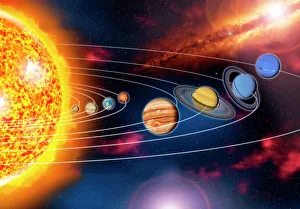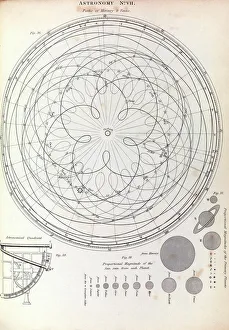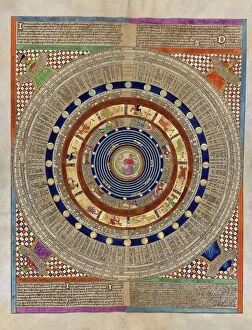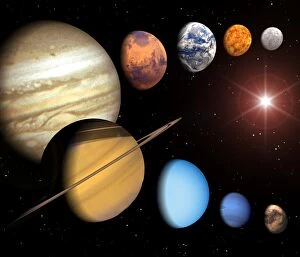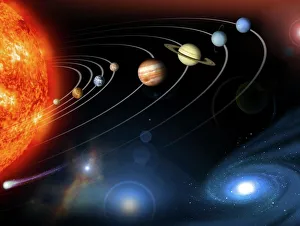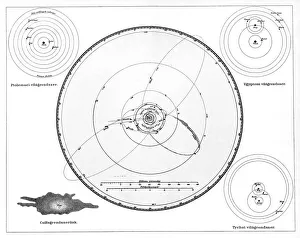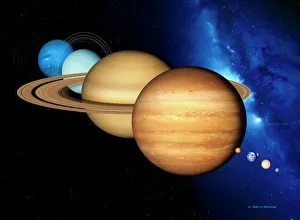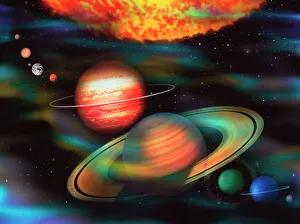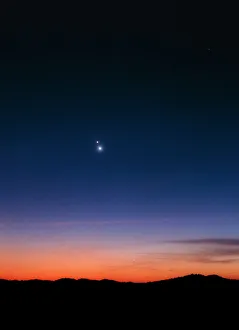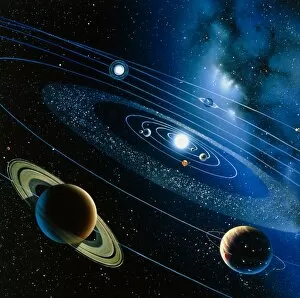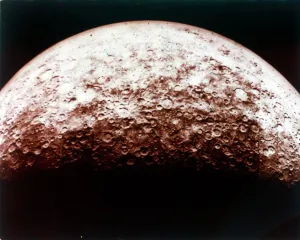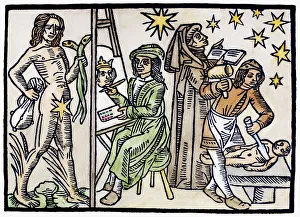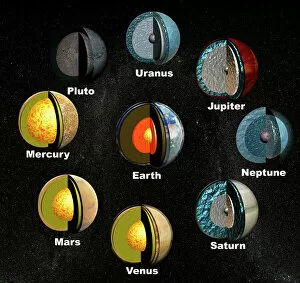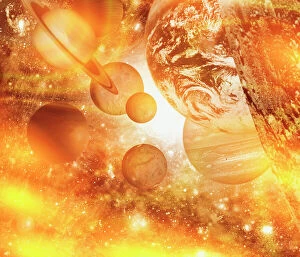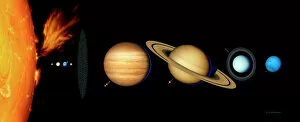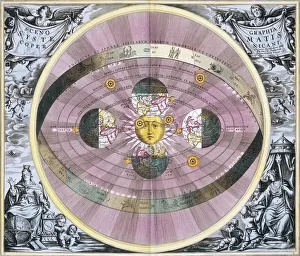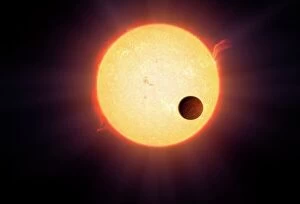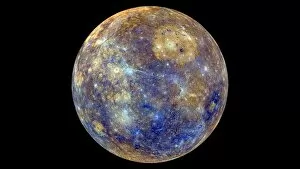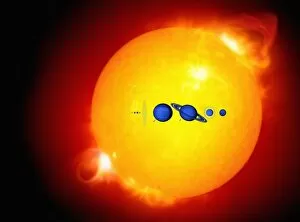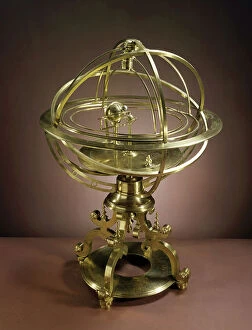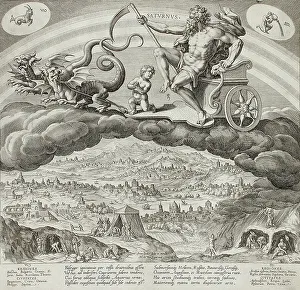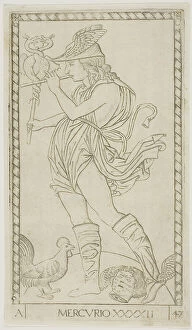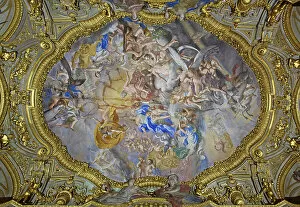Mercury Collection
Mercury is the smallest and innermost planet in the Solar System, and is a rocky planet with a thin atmosphere, and it orbits closest to the Sun
Choose a picture from our Mercury Collection for your Wall Art and Photo Gifts
396 items
All Professionally Made to Order for Quick Shipping
-
Mercury Collection
Mercury is the smallest and innermost planet in the Solar System, and is a rocky planet with a thin atmosphere, and it orbits closest to the Sun. Mercury has been explored by spacecraft, most notably Mariner 10 in 1974-75 which mapped about 45% of its surface. The Messenger mission was launched in 2004 to study Mercury's composition, geology, and magnetic field. Recent findings suggest that Mercury may have an iron core that takes up 85% of its volume and may still be active today. Its surface is covered with craters from meteorite impacts as well as cliffs formed by ancient volcanic activity. Its proximity to the Sun makes it difficult for scientists to explore further due to extreme temperatures ranging from -173°C at night to 427°C during the day. Despite this challenge, scientists continue their research on this mysterious planet hoping for more discoveries about its past and present state of being.
+
Our beautiful pictures are available as Framed Prints, Photos, Wall Art and Photo Gifts
The Mercury collection from Media Storehouse is a stunning array of wall art, framed prints, photo prints, canvas prints, jigsaw puzzles and greeting cards that celebrate the beauty and mystery of our solar system's smallest planet. Featuring high-quality images captured by NASA spacecraft and telescopes, our collection offers a unique glimpse into the fascinating world of Mercury. From close-up shots of its rugged terrain to breathtaking views of its sun-scorched surface and towering cliffs, each piece in our collection captures the essence of this enigmatic planet. Whether you're an astronomy enthusiast or simply looking for beautiful artwork to decorate your home or office space with, the Mercury collection has something for everyone. With a range of sizes and formats available to choose from, including traditional framed prints and modern canvas options, it's easy to find the perfect piece to suit your style and budget. So why not explore the wonders of Mercury today?
+
What are Mercury (Planets Space Exploration Science) art prints?
Mercury art prints are high-quality reproductions of images captured by NASA's Messenger spacecraft during its mission to explore the planet Mercury. These stunning prints showcase the unique features and landscapes of this small, rocky planet located closest to the sun in our solar system. The images were taken from various angles and distances, allowing for a comprehensive view of Mercury's surface, including its craters, mountains, valleys, and plains. Mercury art prints are perfect for space enthusiasts or anyone interested in planetary science. They can be used as decorative pieces in homes or offices or as educational tools in classrooms and museums. These prints are available in a variety of sizes and formats to suit different preferences and needs. We offer a wide selection of Mercury art prints that are produced using state-of-the-art printing technology to ensure maximum clarity and detail. Each print is carefully inspected before shipping to ensure it meets their high standards for quality assurance.
+
What Mercury (Planets Space Exploration Science) art prints can I buy from Media Storehouse?
We offer a wide range of Mercury art prints that are perfect for space enthusiasts and collectors. These prints showcase the beauty and mystery of this fascinating planet, featuring stunning images captured by NASA's spacecrafts. You can choose from a variety of styles, including abstract designs, detailed maps, and realistic depictions of Mercury's surface. Some prints also feature other planets in our solar system or the Sun itself, providing context for Mercury's place in the universe. Whether you're looking for a large canvas print to display on your wall or a smaller framed print to add to your collection, we have something for everyone. With high-quality printing techniques and premium materials used throughout production, these art prints are sure to impress both casual viewers and serious collectors alike. So why not explore our selection of Mercury art prints today? You're sure to find something that captures your imagination.
+
How do I buy Mercury (Planets Space Exploration Science) art prints?
To purchase Mercury art prints from Media Storehouse, you can browse our extensive collection of space-themed artwork online. Once you have found the print that you would like to purchase, simply add it to your cart and proceed to checkout. You will be prompted to enter your shipping and payment information before finalizing your order. We offer a variety of sizes and framing options for their art prints, so be sure to select the one that best fits your needs. Their high-quality printing process ensures that each print is vibrant and true-to-life, making them perfect for display in any home or office. Whether you are an avid space enthusiast or simply appreciate beautiful artwork, our collection of Mercury art prints is sure to impress. So why wait? Start browsing today and bring a piece of outer space into your home.
+
How much do Mercury (Planets Space Exploration Science) art prints cost?
We offer a range of Mercury art prints that are perfect for space enthusiasts and collectors alike. Our collection includes stunning images captured by NASA's spacecrafts, featuring the planet's surface and its unique characteristics. The cost of our Mercury art prints varies depending on the size and type of print you choose. We offer a variety of options including framed or unframed prints, canvas wraps, and metal prints. Each option has its own price point to suit different budgets. Our high-quality art prints are produced using state-of-the-art printing technology to ensure exceptional clarity and detail in every image. Whether you're looking for a small print to display on your desk or a large statement piece for your home or office, we have something to suit all tastes and preferences. The cost of our Mercury art prints is competitive with other online retailers offering similar products.
+
How will my Mercury (Planets Space Exploration Science) art prints be delivered to me?
We take great care in delivering your Mercury art prints to you. We use high-quality packaging materials to ensure that your prints arrive in pristine condition. Your order will be carefully packed and shipped using a reliable courier service. We offer a range of delivery options to suit your needs, including standard and express shipping. You can track the progress of your order online, so you know exactly when it will arrive. When you receive your Mercury art prints from us, they will be ready for framing or display as soon as you unpack them. We are committed to providing our customers with the best possible experience when ordering from us, and we strive to make every step of the process as easy and hassle-free as possible. If you have any questions about our delivery process or need assistance with placing an order, please don't hesitate to contact us.

